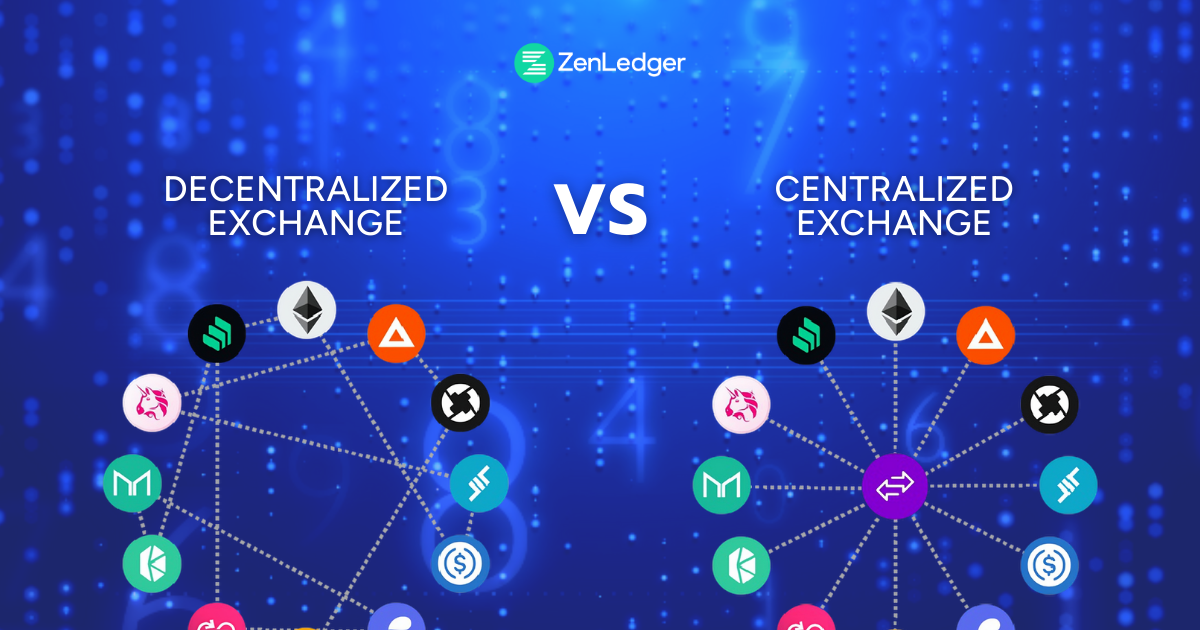
Decentralized Exchanges (DEX): Differences between DEX and centralized exchanges
Centralized exchanges (CEXs) are online platforms that allow users to buy, sell, and trade cryptocurrencies. They are operated by a central authority, which is responsible for managing the exchange’s order book, matching buyers and sellers, and executing trades. CEXs typically offer a wide range of features, including fiat currency on-ramps, margin trading, and derivatives trading.
Decentralized exchanges (DEXs), on the other hand, are peer-to-peer (P2P) platforms that allow users to trade cryptocurrencies directly with each other. They are not operated by a central authority, and instead rely on a distributed network of computers to facilitate trades. DEXs typically offer a more limited range of features than CEXs, but they are often seen as more secure and transparent.
Here is a table summarizing the key differences between DEXs and CEXs:
| Feature | DEX | CEX |
|---|---|---|
| Centralization | Decentralized | Centralized |
| Order matching | Peer-to-peer | Centralized |
| Trade execution | On-chain | Off-chain |
| Fees | Typically lower | Typically higher |
| Security | More secure | Less secure |
| Transparency | More transparent | Less transparent |
| Features | Limited | Extensive |
Advantages of DEXs
- Security: DEXs are generally considered to be more secure than CEXs because they are not operated by a central authority. This means that there is no single point of failure that could be hacked or compromised.
- Transparency: DEXs are more transparent than CEXs because all trades are recorded on the blockchain. This makes it easy for users to track their trades and see how the exchange is operating.
- Self-custody: DEXs allow users to maintain custody of their own private keys. This means that users are not at risk of losing their funds if the exchange is hacked or goes bankrupt.
Disadvantages of DEXs
- Limited features: DEXs typically offer a more limited range of features than CEXs. This includes features such as fiat currency on-ramps, margin trading, and derivatives trading.
- Slow transaction times: DEXs can be slow to execute trades, especially during periods of high traffic. This is because DEXs rely on a distributed network of computers to facilitate trades, which can be slower than the centralized servers used by CEXs.
- High fees: DEXs can have high fees, especially for small trades. This is because DEXs rely on a decentralized network of computers to facilitate trades, which can be expensive to operate.
Conclusion
DEXs and CEXs are both valid options for trading cryptocurrencies. DEXs offer greater security and transparency, while CEXs offer a wider range of features and faster transaction times. The best exchange for you will depend on your individual needs and preferences.


